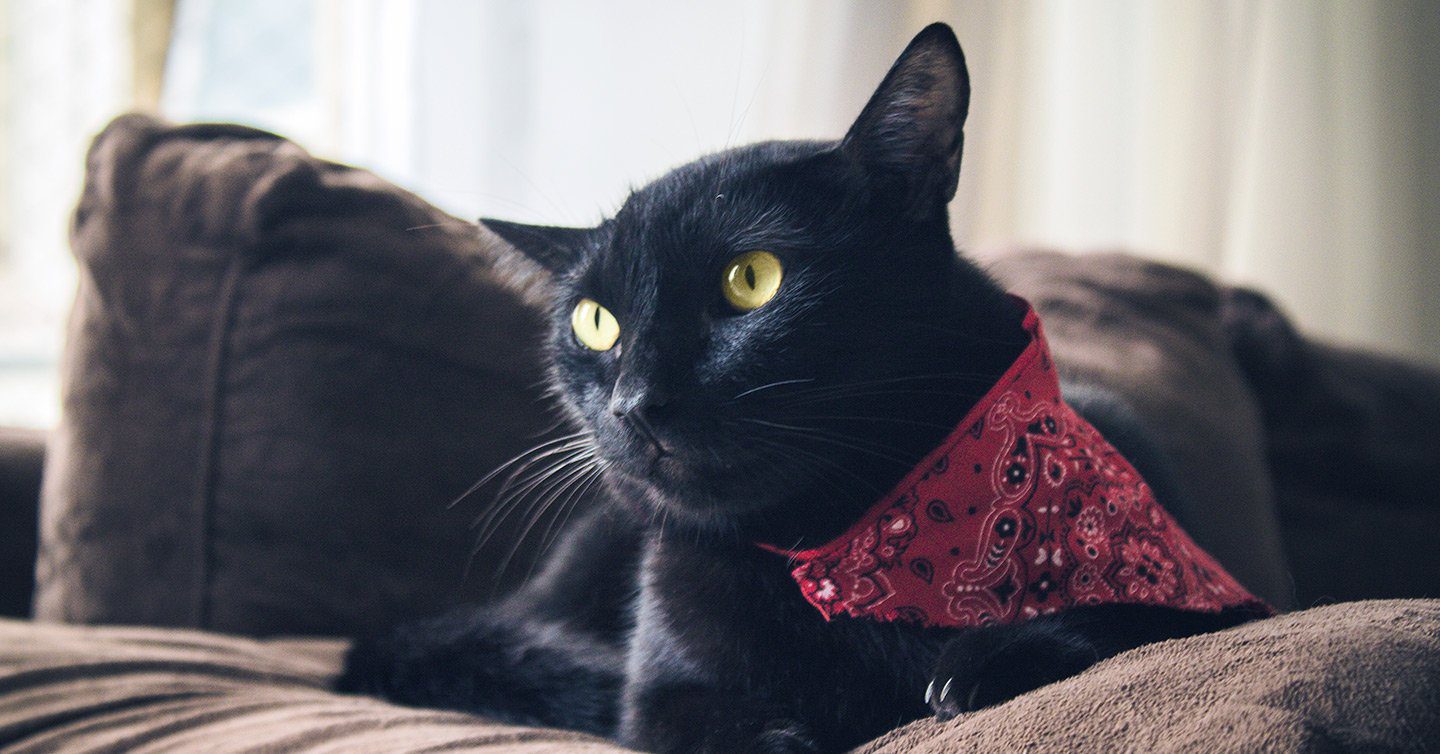History and pop culture have given black cats a bad rap, but they deserve to be loved just as much as the rest of their furry friends. Unfortunately, the association between black cats and witchcraft, which began in Europe during the Middle Ages, has persisted to this day. Black cats are common symbols of Halloween and are seen as witchy companions in TV and movies like Sabrina the Teenage Witch and Hocus Pocus. There is even a well-known superstition that says that a black cat crossing your path will bring you bad luck.
This is, of course, complete nonsense. Black cats are just as lovable as any other color cat. To celebrate these beautiful felines, here are five fascinating black cat facts.
1. Black cats are actually good luck in many cultures.
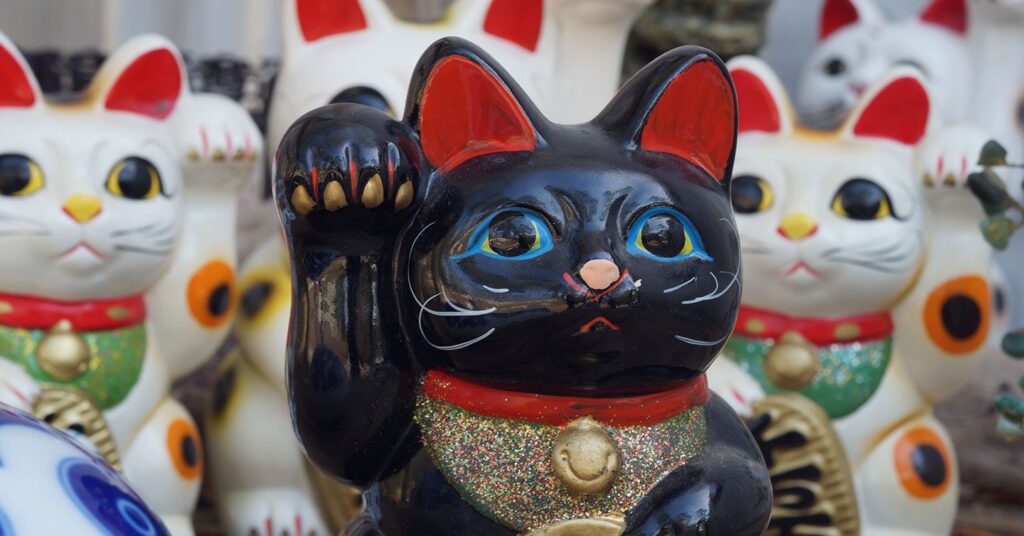
Not everyone believes that black cats are spooky or dangerous to be around. Many cultures celebrate black cats. In Japan, a black cat crossing your path is a good thing. Cats are considered lucky in Japan, and black cats are especially lucky for single women looking for love. Japanese maneki neko dolls are cats, and the black one is believed to ward off evil spirits. There is even a café in Himeji, Japan called Nekobiyaka that is dedicated entirely to black cats. It’s the only exclusively black cat café in the world, and the cats wear different colored bandanas so customers can tell them apart – truly a cat lover’s paradise.
In Egypt, all cats are considered good luck, and the ancient Egyptians worshipped the goddess Bastet, who was depicted as having the head of a black cat on a woman’s body. During ancient Egyptian times, cats were considered so sacred that killing one was a very serious crime. In Norse mythology, black cats are associated with Freya, the goddess of fertility and love. Freya’s chariot is pulled by two black cats. These are just a few of the many cultures that believe that black cats are a force for good and not evil.
2. There are many breeds of black cat.
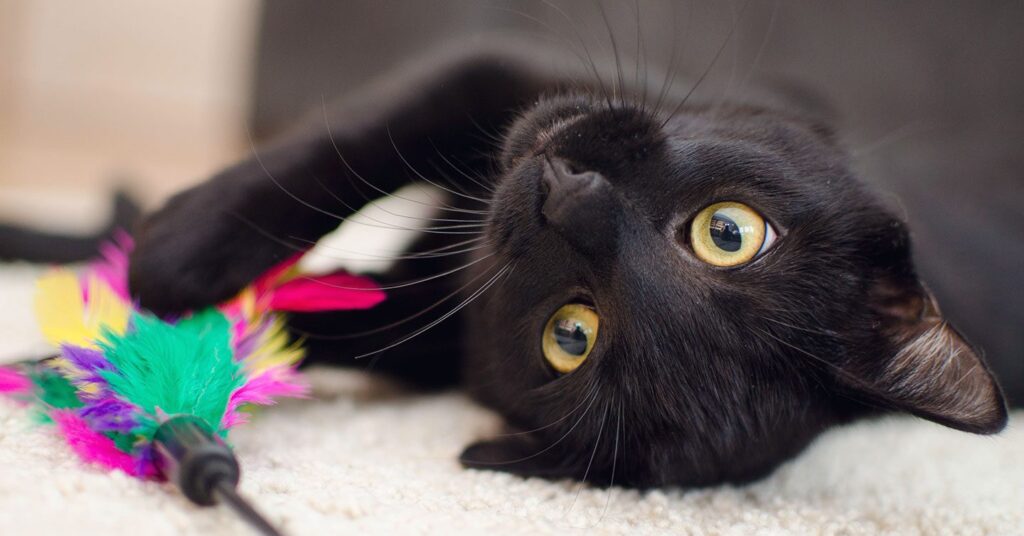
According to the Cat Fanciers’ Association (CFA), there are 22 breeds of cat that can have all black fur. But only one – the Bombay – comes exclusively with a black coat. Bombays are all black everywhere, with solid black fur as well as black paw pads, noses, and whiskers. The Bombay cat was first bred by Nikki Horner in the late 1950s. She wanted to create a cat that looked like a tiny version of a black leopard, with a sleek all-black shorthaired coat and bright yellow eyes. She bred Burmese with American Shorthairs and eventually she succeeded in creating the beautiful Bombay.
Other breeds that can be solid black are American Bobtail, American Curl, American Shorthair, American Wirehair, British Shorthair, Cornish Rex, Devon Rex, Exotic, Japanese Bobtail, LaPerm, Maine Coon, Manx, Norwegian Forest Cat, Oriental, Persian, Ragamuffin, Scottish Fold, Selkirk Rex, Siberian, Sphynx, and Turkish Angora. These other breeds of cat CAN be all black, but in order for a cat to be solid black, both of the cat’s parents have to have the black hair color gene.
3. Black cats may be more resistant to disease.
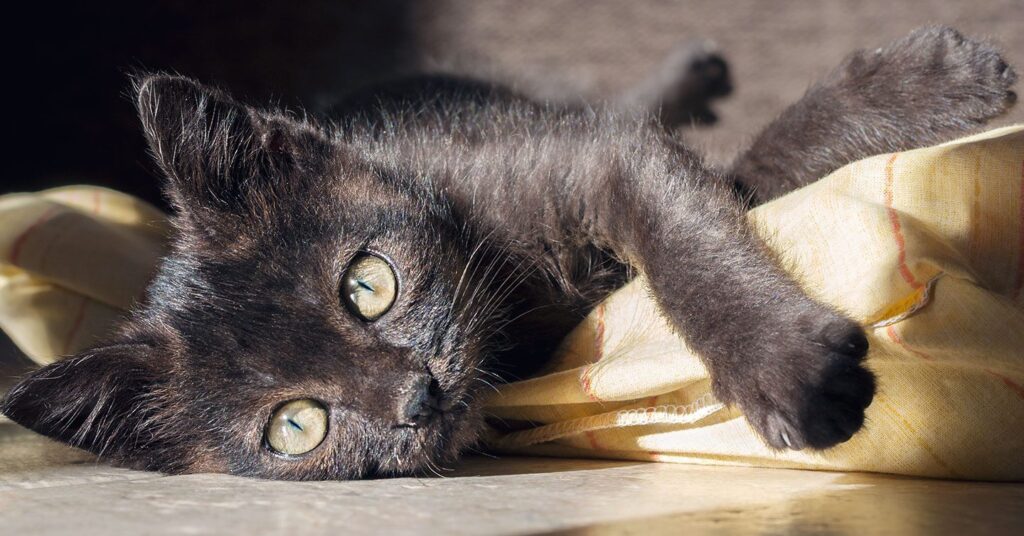
In a study by the National Institutes of Health, researchers discovered that the genetic mutation responsible for cats’ black fur is in the same family as a human gene involved in resistance to HIV. Scientists believe that the evolution of melanism (having black fur) in so many different species of cats indicates that there is a benefit to black fur in terms of survival, and that this benefit may be an increased resistance to disease. Since cats suffer from many of the same diseases as humans – such as cancer, feline AIDS, and diabetes – researchers are hopeful that studying black cat genetics may help in learning more about human resistance to disease.
Pet Pro Tip: Any responsible pet owner should seriously consider pet insurance. Properly understanding how Dog insurance works and Dog insurance covers can help you make an informed decision about your pet’s health needs and plan your finances accordingly!
4. “Black cat syndrome” is becoming a myth.
While there are a ton of black cats in shelters, it may be a myth that potential cat parents are passing over black cats because of the color of their fur. A study conducted by Emily Weiss for the ASPCA found that black cats were actually being adopted at a higher rate than other colored cats. The study did find that black cats were euthanized at a higher rate, but Weiss believes that this is because there are simply more black cats in shelters than cats of other colors.
While the results of Weiss’s study provide statistics regarding black cat adoption, many people still believe that black cats are adopted less frequently than other cats. Some workers at animal shelters also find that their experience with black cat adoption numbers is different than what the ASPCA study showed. This has led many shelters to push for black cat adoptions on National Black Cat Appreciation Day (August 17). There are so many black cats in shelters around the world that are in need of a loving forever home.
5. A black cat’s fur can change color.
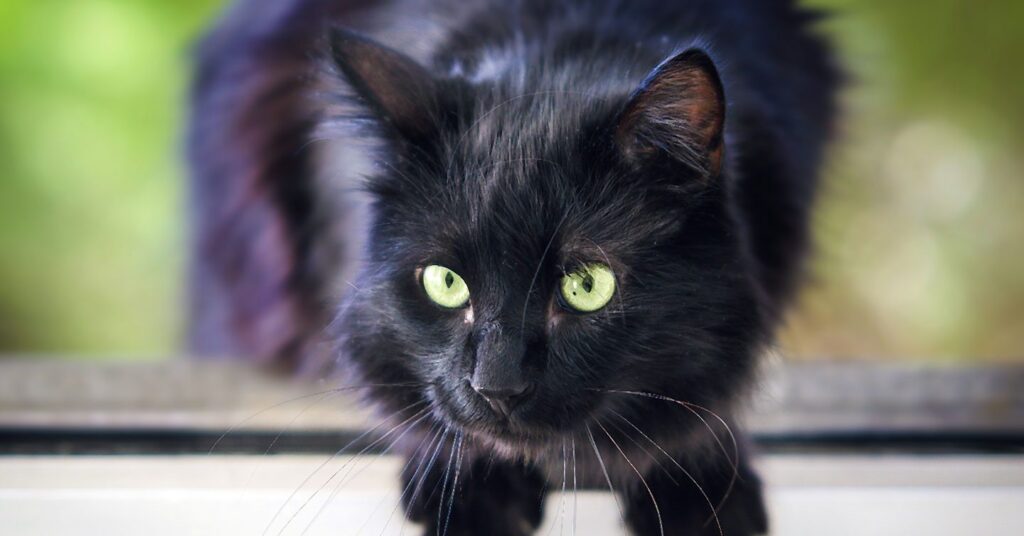
A black cat’s coat can change from solid black to a reddish-brown color. This is called “rusting” (because the fur ends up looking rust-colored). There are a few reasons this can happen. One of the most common (and harmless) is when a black cat spends a lot of time lounging in the sun. Much like humans whose hair lightens from sunbathing, the sun can have a bleaching effect on the cat’s fur, turning it from jet black to reddish brown.
Another reason a black cat’s fur might change color is that it has a nutritional deficiency. Cats require the amino acid tyrosine to produce eumelanin, which is the pigment that creates black fur. If a black cat has a tyrosine deficiency, their fur can change color. Luckily, this is an easy fix. Tyrosine is found in animal proteins such as meat and fish, so the deficiency can be solved by adding more meat to the cat’s diet or using dietary supplements.
While rusting is most commonly caused by one of the above reasons, there is a possibility that it could be a sign of a more dangerous issue such as liver, kidney, or thyroid disease. Black cat parents should always alert their vet to any changes in coat color just to rule out a more serious issue.
If you have any concerns about the wellness of your cat – black or otherwise – or just want to keep your fur baby happy and healthy, check out Pumpkin’s Cat Insurance. All cats – no matter their age, breed, or the color of their fur – deserve to live the longest, healthiest life possible, and we are lucky to share our hearts and homes with any cat that loves us back.
